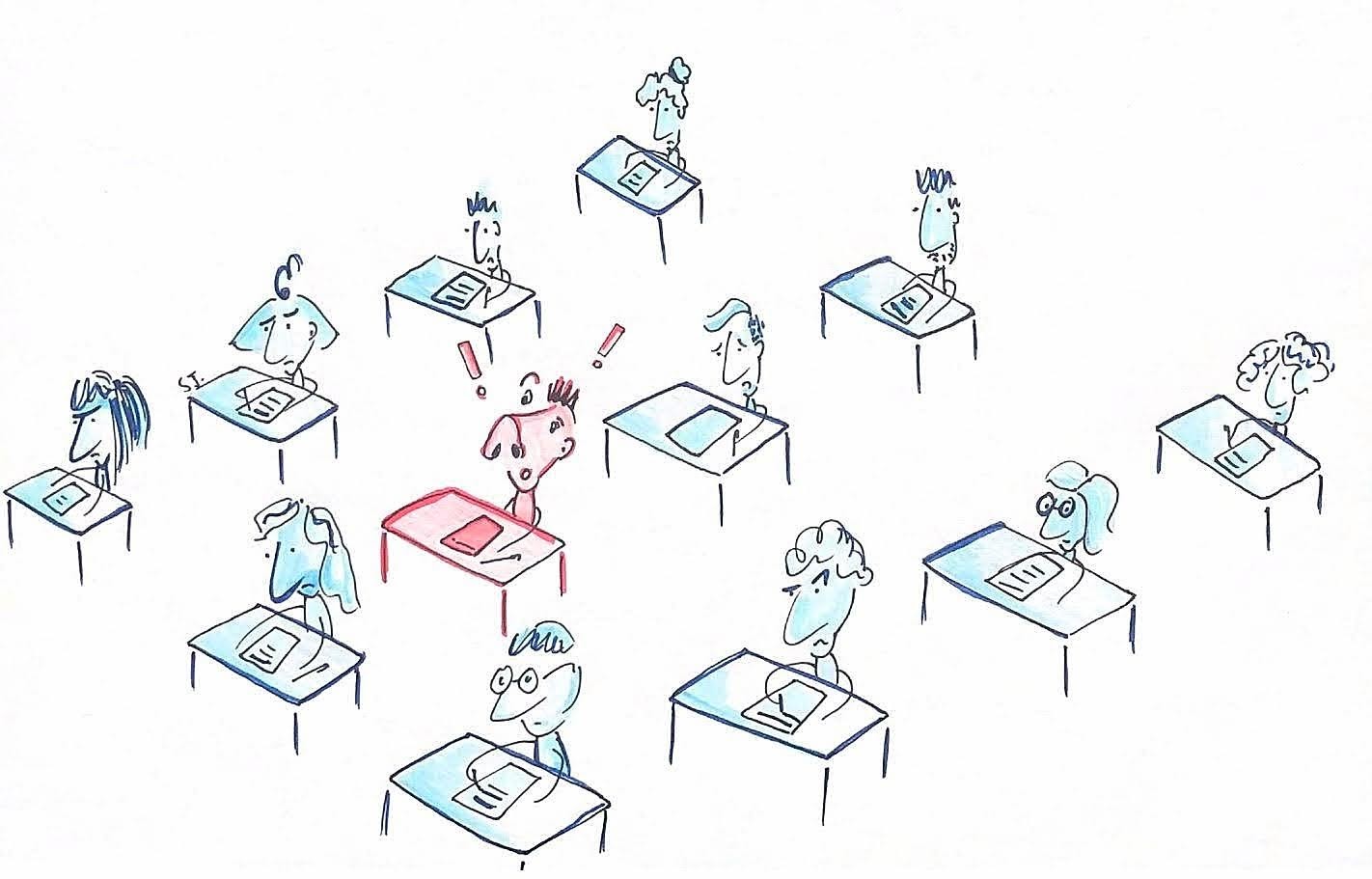We have all been there. It is the night before the exam, the books are open on the table and everything stopped making sense two coffees ago. There it is, as a last resort, a piece of paper on which you could write all the information that you won’t have time to memorise. At least, that is the old fashioned way of doing it.
Cheating is a common feature of the educational experience and it takes different forms, from carefully designed pieces of paper hidden in one’s sleeve, to hiding a phone in a pocket, to copying your neighbour’s answers. It usually becomes more sophisticated and, as students hope, less obvious as they progress towards higher levels of education, so we would expect that students at a university would be masters at cheating.
In reality, the incidence of cheating decreases once we progress to higher education. Firstly, I believe it is safe to assume that the majority of people studying at a university are there out of personal choice. They want to get a degree, and they had to do well in their previous examinations in order to be accepted into somewhere like the University of Edinburgh in the first place. Therefore, in choosing the course they are interested in, they do not feel as much need to have a back-up plan in case their studies do not go as anticipated. Of course, it sometimes happens that there simply is not enough time to study, or a topic is too complicated to understand, so cheating seems like an attractive idea that could lead to a higher mark. But I would argue that most students know, to some extent, what they were signing up for when they applied to university.
Moreover, a great deal of students have worked hard in their previous educational experiences and were most likely not involved in cheating as much as some who perhaps valued high marks over knowledge.
Secondly, the risk of being caught and penalised for academic misconduct is too high. The university has a specific process following suspected academic misconduct and the penalties differ from reducing a mark to zero to the suspension of specified privileges for a specified period, a reprimand, and so on. It is therefore simply not worth it to cheat since the consequence is highly likely to be a situation worse than receiving the initial mark without having cheated in the exam.
Lastly, it has been advised from an initiative that there should be a complete overhaul of anti-cheating procedures at the university. While this is surely a well-intentioned suggestion, increased mention of cheating could unintentionally encourage some students to think about cheating and perhaps then practice it as well. I am not suggesting the university should ignore the issue of cheating, especially if there is a significant rise and students are not informed enough about the rules and penalties, but there is a risk that once it is mentioned and all the disciplinary actions and consequences are laid out, the incidents of academic misconduct would increase rather than go down.
To conclude, I do not believe cheating is a significant issue at the university. In the time of my study, it has in fact never come up in a conversation with other students, and I have not heard of anyone attempting or even just thinking about cheating. Thus, I do not think that additional action is needed from the university and it could actually result in a negative effect rather than preventing cheating.
Illustration: Sophie Jones

